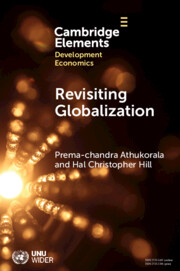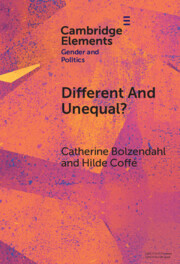Refine listing
Actions for selected content:
141367 results in Open Access
Restoring Indigenous Place Names
- Making Anishinaabe Toponyms Visible Throughout the White Earth Ojibwe Reservation
- Coming soon
-
- Expected online publication date:
- April 2026
- Print publication:
- 30 April 2026
-
- Element
- Export citation

From Collective Punishment to Constraints on Authority
- Rethinking the Impact of US Sanctions on Venezuela
- Coming soon
-
- Expected online publication date:
- April 2026
- Print publication:
- 30 April 2026
-
- Element
- Export citation

Muslim Theological Encounters with Science
- Kaleidoscopes of Knowledge Over Time
- Coming soon
-
- Expected online publication date:
- April 2026
- Print publication:
- 30 April 2026
-
- Element
- Export citation

Virtual Reality Risks for Children in the Metaverse
- An Examination through Criminological Perspectives
- Coming soon
-
- Expected online publication date:
- April 2026
- Print publication:
- 30 April 2026
-
- Element
- Export citation

Digital Multilingualism and Platform Governance
- Coming soon
-
- Expected online publication date:
- April 2026
- Print publication:
- 30 April 2026
-
- Element
- Export citation

Building Capacity for Public Engagement on Solar Geoengineering
- Coming soon
-
- Expected online publication date:
- April 2026
- Print publication:
- 30 April 2026
-
- Element
- Export citation

Dialogue in Amerta Movement
- Coming soon
-
- Expected online publication date:
- April 2026
- Print publication:
- 30 April 2026
-
- Element
- Export citation

Spectra of Discrete Structures
- Coming soon
-
- Expected online publication date:
- April 2026
- Print publication:
- 30 April 2026
-
- Book
- Export citation

Sikh Ethics
- Coming soon
-
- Expected online publication date:
- April 2026
- Print publication:
- 30 April 2026
-
- Element
- Export citation

Rhetoric and Reality
- International Organizations, Sovereignty Costs, and Human Rights
- Coming soon
-
- Expected online publication date:
- April 2026
- Print publication:
- 30 April 2026
-
- Element
- Export citation

Revisiting Globalization
- Southeast Asia in the Global Factory
- Coming soon
-
- Expected online publication date:
- April 2026
- Print publication:
- 30 April 2026
-
- Element
- Export citation
Knowledge/Nation
- The Humanities and the Social Sciences in Postcolonial India
- Coming soon
-
- Expected online publication date:
- April 2026
- Print publication:
- 01 July 2027
-
- Book
- Export citation
Growing up with Artificial Intelligence
- Implications for Child Development
- Coming soon
-
- Expected online publication date:
- April 2026
- Print publication:
- 30 April 2026
-
- Element
- Export citation

Post-Soviet Brides in the China Dream
- Migration, Marriage, and Geopolitics Across Borders
- Coming soon
-
- Expected online publication date:
- April 2026
- Print publication:
- 30 April 2026
-
- Book
- Export citation

Sexual Harassment between Doctors
- Healing Medical Cultures Around the World
- Coming soon
-
- Expected online publication date:
- April 2026
- Print publication:
- 30 April 2026
-
- Book
- Export citation

Empirical Legal Studies in EU Law
- Coming soon
-
- Expected online publication date:
- April 2026
- Print publication:
- 30 April 2026
-
- Book
- Export citation

Different and Unequal?
- Gendered Political Participation in European Democracies
- Coming soon
-
- Expected online publication date:
- April 2026
- Print publication:
- 30 April 2026
-
- Element
- Export citation
Collaboration, Technologies, and the History of Shakespearean Bibliography
- Coming soon
-
- Expected online publication date:
- April 2026
- Print publication:
- 30 April 2026
-
- Element
- Export citation
Introduction: Navigating Climate Justice Thought and Action
-
-
- Book:
- Seeking Global Climate Justice
- Published online:
- 09 January 2026
- Print publication:
- 31 March 2026, pp 1-17
-
- Chapter
-
- You have access
- Open access
- Export citation
Contents
-
- Book:
- Seeking Global Climate Justice
- Published online:
- 09 January 2026
- Print publication:
- 31 March 2026, pp vii-viii
-
- Chapter
-
- You have access
- Open access
- Export citation
